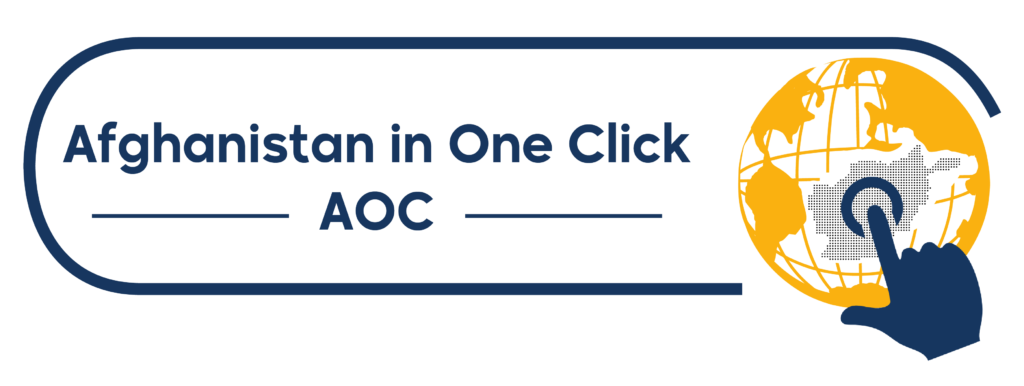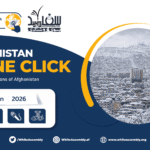Afghanistan in one click – November 2024
For third year, Afghanistan’s university exam registration opens without female applicants
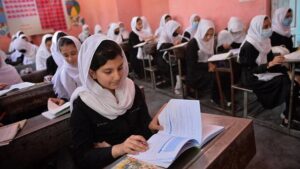 KABUL, Afghanistan — The Taliban-run Ministry of Education announced on Monday the opening of registration for the 2024 university entrance exams, known as the Kankor, for male high school and religious seminary graduates. For the third consecutive year, however, female students remain barred from registering.
KABUL, Afghanistan — The Taliban-run Ministry of Education announced on Monday the opening of registration for the 2024 university entrance exams, known as the Kankor, for male high school and religious seminary graduates. For the third consecutive year, however, female students remain barred from registering.
Since the Taliban prohibited education for girls above the sixth grade, millions of girls have been unable to attend school, leaving them excluded from opportunities for higher education.
Mansoor Ahmad Hamza, a spokesperson for the Taliban-led Ministry of Education, encouraged prospective candidates to complete online registration forms but did not address the exclusion of girls from the exam. Eligible candidates have until the end of January to register.
Taliban banned women from attending universities in December 2022. Meanwhile, many young women who would otherwise qualify for the exam voiced disappointment over their exclusion and urged the Taliban to lift restrictions on their education.
“There’s no religious barrier to girls’ education,” said Fatima, a 12th-grade graduate. “Yet again, registration has opened, and we haven’t been given permission to take part. I hope that universities and schools will reopen for us soon.”
Farhat, a resident of Balkh Province, expressed similar concerns. “There’s no Islamic basis for denying girls an education,” she said. “But the Taliban continue to keep us away from it. Even now, we aren’t allowed to register for the Kankor. Still, I hope these restrictions will soon be lifted.”
Last year, over 87,000 people registered for the Kankor exams, with 44,738 successfully securing admission. But with the Taliban continuing to bar girls from participating, many female graduates remain in uncertainty, awaiting the chance to pursue their education.
Woman shares impact of university ban in Afghanistan
 A young woman, among thousands affected by the Taliban’s ban on higher education for women, describes the profound impacts of the continued closure of universities. The lack of access to education, she said, has driven many, including herself, into depression and forced marriages.
A young woman, among thousands affected by the Taliban’s ban on higher education for women, describes the profound impacts of the continued closure of universities. The lack of access to education, she said, has driven many, including herself, into depression and forced marriages.
For Banafsheh, 22, the trajectory of her life shifted dramatically when the Taliban barred Afghan women from attending university. Once determined to pursue a career in medicine, she now faces a future marked by despair and an arranged marriage.
Banafsheh, who spoke under a pseudonym for her safety, completed high school but saw her ambitions collapse when the Taliban prohibited her from taking the national university entrance examination last year. The psychological strain was immense. “I watched my brother and cousin register for university entrance exams, while I couldn’t even consider it,” she said. “The pressure was unbearable. I took several of my father’s pills. My sister found me in time and rushed me to the hospital. When I woke up, it felt like my world had crumbled.”
Following her recovery, Banafsheh was compelled by her family to marry. Her story reflects the broader struggle faced by many young Afghan women contending with the Taliban’s strict policies that have sharply curtailed their rights. “These restrictions have turned our lives into a nightmare, fostering domestic violence and stealing our futures,” she said.
Banafsheh had long dreamed of becoming a doctor and serving her community. “Those dreams are now buried,” she said. “The government’s decisions have destroyed the aspirations of millions of girls like me.”
The impact of the education ban is widespread. Marsal, another high school graduate, expressed similar sentiments. “Without access to education, we are trapped and vulnerable to forced marriages and domestic abuse,” she said.
According to the United Nations Educational, Scientific, and Cultural Organization (UNESCO), around 2.5 million girls in Afghanistan have been denied their right to education, representing 80 percent of school-aged girls in the country.
The Taliban’s policies have drawn widespread condemnation from international organizations, exacerbating the plight of Afghan women and girls who now face not only educational barriers but also the threat of forced marriages and social marginalization
Afghan women, barred from education, seek to leave the country
 A growing number of Afghan female students say they are being forced to consider leaving the country in pursuit of academic opportunities and a more secure future.
A growing number of Afghan female students say they are being forced to consider leaving the country in pursuit of academic opportunities and a more secure future.
Many of these young women describe migration as a painful but necessary choice, preferring the hardships of resettlement over being confined to their homes. Their pleas for an education come as the world marks the International Week of Science and Peace, observed annually from November 9 to 15. The United Nations first celebrated the week in 1986 as part of the International Year of Peace.
Mahtab, a student from Daikundi province, shared her story of perseverance and frustration. After years of studying to pass the university entrance exam, she was admitted to Kabul University’s Faculty of Law and Political Science. But before she could begin her higher education, the Taliban banned university studies for women.
“I finished school in Daikundi and, after much struggle, was accepted to study law at Kabul University,” Mahtab said. “When the Taliban came, we were banned from attending. For two years, I’ve waited for universities to reopen, but they haven’t. The uncertainty about my future is very painful.”
Faced with dwindling hope, Mahtab’s family decided to pool resources to send her abroad. “Migration is hard, but it’s the only way to escape this lack of future and depression and secure a better life for myself,” she said.
Stéphane Dujarric, the Deputy Spokesman for the U.N. Secretary-General, noted that this year’s World Science Day for Peace and Development, observed on Sunday, will focus on “Youth at the Forefront.” The theme aligns with the upcoming International Decade of Sciences for Sustainable Development (2024–2033).
Since their return to power in 2021, the Taliban have banned girls from attending school beyond grade six and prohibited women from universities and most forms of employment. The restrictions have left many young women like Khatira, another student, with few options but to seek education abroad.
“For three years, we have struggled under these bans,” Khatira said. “Given the situation, many of us are forced to consider going abroad for education and work. Even scholarships are being purchased at steep prices just to escape and build a future.”
Nearly 1,150 days have passed since the Taliban first shuttered secondary schools for girls. Despite international pressure, the group has not reversed its decision, leaving Afghan women with increasingly limited opportunities and a choice between uncertainty at home or difficult paths abroad.
Japan stands alone among G7 in supporting Afghan women, says UNDP
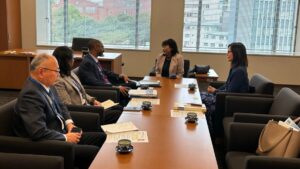 The United Nations Development Programme (UNDP) has reaffirmed its commitment to women’s empowerment and climate resilience in Afghanistan, highlighting Japan as the only G7 nation actively supporting these efforts.
The United Nations Development Programme (UNDP) has reaffirmed its commitment to women’s empowerment and climate resilience in Afghanistan, highlighting Japan as the only G7 nation actively supporting these efforts.
In a statement on X, UNDP Afghanistan praised Japan for its dedication to Afghanistan’s stability and women’s empowerment, emphasizing its unique position as the sole G7 member in Asia to extend such support.
The statement followed a meeting between Stephen Ngenzi Rodriques, UNDP’s Afghanistan director, and Japanese parliamentarian Kuniko Inoguchi. “Stephen Ngenzi Rodriques and MP Kuniko Inoguchi emphasize the importance of continued support for the region,” the UNDP said.
Challenges amid Taliban restrictions
The pledge comes amid a funding shortfall for humanitarian operations in Afghanistan, compounded by the Taliban’s oppressive restrictions on women and girls.
A recent report released on November 4 by the Gender in Humanitarian Action (GiHA) Working Group and the Humanitarian Access Working Group (HAWG) outlines the operational difficulties faced by Afghan and international aid organizations under the Taliban’s increasing constraints on women.
The ninth survey of its kind tracks trends since the Taliban’s December 2022 ban on Afghan women working for NGOs, a restriction extended to U.N. agencies in April 2023 under the Taliban’s new morality law.
The survey, which gathered responses from 142 organizations—including national NGOs, international NGOs, civil society groups, and U.N. agencies—provides a detailed account of the challenges faced in delivering humanitarian aid and essential services.
The report underscores the dual challenge of sustaining humanitarian operations while navigating policies that severely limit women’s participation. Despite these barriers, organizations continue to deliver aid under challenging conditions, reflecting the resilience of humanitarian efforts in the face of restrictive Taliban policies.
Afghan teenager wins International Children’s Peace Prize
 Neela Ibrahimi, a 17-year-old Afghan advocate for girls’ rights and education, has been awarded the prestigious International Children’s Peace Prize.
Neela Ibrahimi, a 17-year-old Afghan advocate for girls’ rights and education, has been awarded the prestigious International Children’s Peace Prize.
Ibrahimi received the award on Tuesday for her efforts to champion the rights of Afghan girls and campaign for children’s education. The prize, previously awarded to prominent figures such as climate activist Greta Thunberg and education advocate Malala Yousafzai, recognizes exceptional contributions to children’s rights and welfare.
Since the Taliban’s return to power in Afghanistan, girls above grade six have been barred from attending school. Ibrahimi’s campaign, I Am My Own Voice, quickly gained prominence as she became a vocal advocate for girls’ education.
In a video message shared by CNN, Ibrahimi reflected on her journey: “It was the first time I told myself, ‘Wow, if I want to, if I think this is the way I want to live, I can speak up, and it can be accepted.’”
Journey and continued advocacy
With the help of an organization, Ibrahimi and her family left Afghanistan, initially relocating to Pakistan and eventually settling in Canada, where she continues to advocate for Afghan girls.
Ibrahimi is also a co-founder of Her Story Is Woman, a project aimed at encouraging Afghan girls to share their stories and amplifying the voices of those who remain in Afghanistan under oppressive conditions.
Activist Zholia Parsi wins 2024 Martin Ennals Award
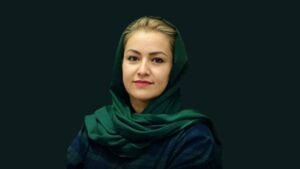 Zholia Parsi, a prominent Afghan human rights activist, has received the 2024 Martin Ennals Award for her extraordinary commitment to advancing human rights in Afghanistan.
Zholia Parsi, a prominent Afghan human rights activist, has received the 2024 Martin Ennals Award for her extraordinary commitment to advancing human rights in Afghanistan.
The award, announced on the Martin Ennals Foundation website, honors Parsi alongside Tajik human rights defender Manuchehr Kholiqnazar. Both recipients will be formally recognized at a ceremony in Geneva on November 21, 2024.
The foundation highlighted the extraordinary bravery of this year’s laureates in defending human rights in highly oppressive environments.
“Zholia Parsi of Afghanistan and Manuchehr Kholiqnazar of Tajikistan have shown remarkable courage and determination to ensure human rights in the face of intense repression,” the announcement read.
Hans Thoolen, chair of the Martin Ennals Award jury, emphasized the global significance of their work. “We are proud to honor these exceptional winners. They have paid a heavy price for justice and equality in Afghanistan and Tajikistan. The international community must support their efforts rather than focus solely on geopolitical conflicts,” Thoolen said.
Parsi’s advocacy
Parsi, a leading voice for women’s rights in Afghanistan, gained prominence for her activism following the Taliban’s return to power. After losing her job under Taliban-imposed restrictions and witnessing her daughters barred from education, she became a vocal critic of policies targeting women’s freedoms and fundamental rights.
Her activism led to her arrest by the Taliban in September 2023. She was detained for nearly three months before being released in December of the same year.
Manuchehr Kholiqnazar’s struggle
Kholiqnazar, a human rights lawyer from Tajikistan’s autonomous Badakhshan region, has also faced severe consequences for his advocacy. In what has been widely criticized as an unfair trial, he was sentenced to 16 years in prison for his human rights work.
Prestigious recognition
The Martin Ennals Award is conferred annually by a jury comprising organizations such as Amnesty International, Human Rights Watch, and the International Federation for Human Rights. The award seeks to honor individuals who have made significant sacrifices to advance human rights globally.
Kazakhstan explores trans-Afghan railway to boost South Asia trade access
Kazakhstan is considering the construction of the Trans-Afghan Railway as a strategic project to enhance access to South Asian markets, President Kassym-Jomart Tokayev announced at the 6th Consultative Meeting of the Heads of Central Asian States.
The railway, which would traverse Uzbekistan, Afghanistan, and Pakistan, is seen as a promising initiative to strengthen economic ties and trade routes across the region.
During the meeting, President Tokayev emphasized the importance of sustaining high levels of development in Central Asia amid the complex geopolitical and economic challenges facing the region. The proposed Trans-Afghan Railway would pass through Termez in Uzbekistan, Mazar-i-Sharif and Logar in Afghanistan, and extend into Pakistan via the Kharlachi crossing in Kurram.
Tokayev also highlighted the crucial issue of water and energy resource management, urging the development of a new consolidated water policy that ensures equal and fair use of resources, along with strict adherence to mutual obligations. His remarks come as concerns over water resource management have grown in Central Asia, particularly with the ongoing construction of the Qosh Tepa canal in Uzbekistan, a major project drawing from the Amu Darya River.
Kazakhstan’s interest in the railway project underscores the broader regional focus on enhancing connectivity and economic cooperation, while also addressing shared challenges such as water resource management.
De Facto Government of Afghanistan Invests 415 Billion Afs in Mining
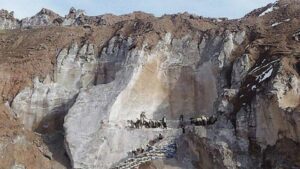 The office of the Deputy Prime Minister for Economic Affairs in a statement said that 415 billion afghani have been invested in the exploration, extraction, and processing of 21 major mines in Afghanistan.
The office of the Deputy Prime Minister for Economic Affairs in a statement said that 415 billion afghani have been invested in the exploration, extraction, and processing of 21 major mines in Afghanistan.
These mines include gold, iron, ruby, chromite, cement, coal, lead, and zinc, most of which are located in the provinces of Ghor, Herat, Kabul, Takhar, Baghlan, Parwan, and Kandahar.
The office of the Deputy PM for Economic Affairs stressed that the de facto government prioritizes standardized investments in mining.
Hamdullah Fitrat, the deputy spokesperson for the government, said: “For almost three years, the work on the exploration, extraction, and processing of 21 mines has been ongoing at a cost of about 415 billion afghani. These mines are located in Herat, Ghor, Kandahar, Takhar, Baghlan, Kabul, and Parwan provinces. The mines include gold, chromite, coal, lead and zinc, cement, and ruby.”
Meanwhile, some experts believe that the proper utilization of Afghanistan’s mines is crucial for the country’s economic growth and development, as well as for providing employment opportunities for its citizens. They emphasize the need for more facilities to be made available to investors.
“If systems for processing precious stones are installed in Afghanistan, they could play a role in improving the economy and reducing unemployment in the future,” Ismail Zadran, an economic analyst, told media.
“To this end, more facilities must be provided. Firstly, there is the issue of security, which, thanks to God, is not a concern in Afghanistan. Secondly, international trade regulations must be established, as Afghanistan currently relies on international donors,” said Shams Rahman Ahmadzai, another economic analyst.
The statement from the office of the Economic deputy PM added that, based on preliminary assessments, Afghanistan has natural reserves worth three trillion dollars. Geological and geophysical studies on several other major mines have also been completed, and work is ongoing to allocate these mines to bidders.
Large Shipment of Imported Goods from China Arrives in Hairatan
 A large shipment of goods belonging to Afghan traders arrived directly in Hairatan port from China
A large shipment of goods belonging to Afghan traders arrived directly in Hairatan port from China
Acting Minister of Industry and Commerce Nooruddin Azizi stated at an event held in Hairatan to mark the occasion that these goods passed through Kazakhstan and Uzbekistan, reaching Afghanistan after 20 days.
Azizi pledged continued efforts to provide more facilities for exporting domestic goods, adding that this train will soon transport Afghan export goods to China.
The acting minister added: “The shipment that arrived in Afghanistan from China today departed from eastern China and reached Afghanistan in 20 days. Most of the goods in this shipment are textiles, which are widely used by the Afghan people.”
This shipment of commercial goods entered the country in 55 wagons.
The acting minister further mentioned that this route has been reactivated after some time and efforts are ongoing to facilitate the transportation of domestic goods via this route to China and then to Europe.
Fattaev Jafar Rahmanovich, Uzbekistan’s Consul General in Mazar-e-Sharif, stated at the event: “Hairatan is a port unlike any other in Central Asia. We must make good use of this port.”
Several traders and officials from the Chambers of Commerce, Investment, Industry and Mines of Balkh consider the reactivation of this route important in reducing costs and expediting exports.
Imamuddin Sanayizada, Head of the Balkh Chamber of Industry and Mines, said regarding the use of such corridors: “For exports, we must utilize these corridors to export our goods in an easier and cheaper way.”
Qalandar Rahimi, one of the traders, stated: “From now on, shipments will arrive in Afghanistan via railway from China, which is significant in reducing transportation costs.”
The acting Minister of Industry and Commerce also added that the de facto government is striving to increase the country’s exports. According to Nooruddin Azizi, Afghanistan’s export volume has increased from $850 million to $2 billion in the current solar year.
40,000 Carats of Emeralds Sold in 12 Auctions Over Eight Months
 The Ministry of Mines and Petroleum reports that since the beginning of 1403 (solar year), 40,000 carats of emeralds worth over $1.8 million have been sold through 12 bidding processes.
The Ministry of Mines and Petroleum reports that since the beginning of 1403 (solar year), 40,000 carats of emeralds worth over $1.8 million have been sold through 12 bidding processes.
Hamayoon Afghan, the ministry’s spokesperson, assured the transparency of the bidding process, stating: “Since the start of 1403, 40,000 carats of emeralds, legally extracted, have been sold through 12 auctions. The total value of these emeralds is approximately $1.85 million.”
The Afghanistan Chamber of Commerce and Investment, emphasizing the importance of Afghan emeralds, has proposed the establishment of domestic and international markets for the sale and processing of this precious stone.
Jan Aqa Naveed, the chamber’s spokesperson, remarked: “Afghan emeralds are globally renowned gemstones, particularly abundant in Panjshir. We recommend creating markets for their purchase, sale, processing, and packaging within Afghanistan to preserve the country’s name on this product.”
Meanwhile, economic experts stress the need for professional extraction and processing of Afghanistan’s mineral resources.
Abdul Zahoor Madaber, an economic analyst, stated: “Afghanistan is extremely rich in mineral resources and gemstones. Proper extraction and processing would increase employment and benefit the Afghan people.”
According to the Ministry of Mines and Petroleum, 600 licenses for emerald mining have been issued so far, providing jobs for approximately 16,000 people.
Afghanistan exports over 10,000 tons of stone to Iran in eight months
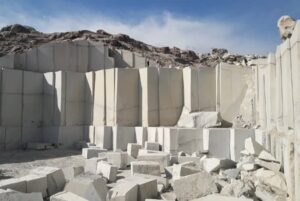 Afghanistan has exported 10,285 tons of stone to Iran over the past eight months, reflecting a 100 percent increase in imports of such materials, an Iranian official reported.
Afghanistan has exported 10,285 tons of stone to Iran over the past eight months, reflecting a 100 percent increase in imports of such materials, an Iranian official reported.
Mehdi Shirdel, governor of Taybad district in Iran’s Razavi Khorasan Province, said the shipments were facilitated through the Dogharoon border customs since the beginning of the current Iranian solar year on March 22, 2024.
According to Iranian media, the exported stones, valued at more than $3.1 million, originated in Afghanistan’s Bamyan Province and were transported via Herat before entering Iran. Each truck carrying the stones reportedly had a loading capacity of 24 tons, Shirdel said.
In a related development, nearly 2 million tons of goods were traded through customs terminals and border markets in Iran’s Sistan and Baluchestan Province during the same eight-month period, according to a report by the Iranian news agency Mehran.
Ayoub Kord, head of the Road and Transportation Department of Sistan and Baluchestan, stated on Sunday that 1,998,553 tons of goods were traded between March 20 and November 20, 2024.
The report highlighted two major border crossings facilitating this trade.
Mirjaveh border crossing: Located on the Iran-Pakistan border, this crossing serves as a critical link for goods moving between the two countries.
Milak border terminal: Situated near Helmand city, this crossing connects Iran with Afghanistan’s Nimruz Province.
These border points play a pivotal role in fostering regional trade, enabling the flow of a wide range of goods, from agricultural products to industrial materials, and bolstering economic ties between Iran and its neighbors.
Trade volume between Kabul Tehran has reached over $1.8 billion: MoIC
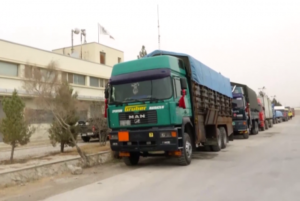 Ministry of Industry and Commerce (MoIC) says the trade volume between Afghanistan and Iran has reached more than $1.8 billion over the past seven months of 1403 [solar year].
Ministry of Industry and Commerce (MoIC) says the trade volume between Afghanistan and Iran has reached more than $1.8 billion over the past seven months of 1403 [solar year].
The ministry’s spokesman Abdulsalam Jawad Akhundzada said these trades include oil and non-oil goods.
According to Jawad , trade and transit with Iran is expanding.
Afghanistan’s trade with Iran during the seven months of 1403 was worth $1 billion 827 million dollars, of which 30 million dollars were exports and $1 billion 797 million dollars were imports,” said Akhundzada
“Most of the major export goods are mineral stones, raisins, all kinds of soft drinks and sesame seeds, and the main import items are diesel fuel, petrol, raw materials for manufacturing, liquid gas and cement,” he added.
Meanwhile, Iranian officials also stated that since the beginning of this year, the export of non-oil goods to Afghanistan has increased to 1.3 billion dollars.
Tehran Times newspaper quoted the Iranian customs officials and reported that Afghanistan was Iran’s fifth largest importer of non-oil products in the last seven months.
Mullah Baradar inaugurates a blanket factory in Kabul
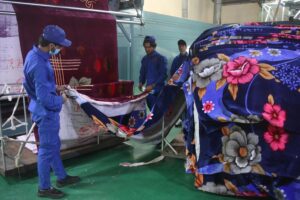
Mullah Abdul Ghani Baradar, the economic deputy prime minister, on Sunday inaugurated a blanket factory in Pul-e-Charkhi industrial area in Kabul city.
Speaking at the inauguration ceremony, Baradar said that with the provision of overall security in the country and the reduction of corruption, a favorable environment for medium and small investments has been created.
He added that the de facto government continues to support domestic industries by implementing effective import substitution policies, which plays an important role in strengthening the country’s national economy.
Baradar stated that in order to support domestic industries, heavy-duty machines worth 100 million afghanis ($1.4 million) were purchased for the newly established blanket factory based on the Islamic Murabaha Islamic financing structure.
Murabaha is a sales contract where the buyer and seller agree on the markup or “cost-plus” price for the item being sold.
Baradar also mentioned that the de facto government seeks to reduce dependence on foreign imports by increasing the level of investment.
He called businessmen and investors to invest inside Afghanistan for the economic growth of the country.
According to Baradar’s office, the newly established blanket factory uses domestically sourced raw materials including wool and cotton, which will help increase job opportunities in addition to strengthening the livestock and agriculture sector.
About 930 million afghanis has been invested in the factory and it currently has the capacity to produce 1,000 blankets per day.
The factory has employed about 900 people.
Putin: Bilateral Relations With Interim Govt Will 'Further Expand'
 Russian President Vladimir Putin has stressed building strong relations with Afghanistan.
Russian President Vladimir Putin has stressed building strong relations with Afghanistan.
At the conclusion of the Collective Security Treaty Organization (CSTO) summit, Putin stated that the stabilization of the situation in Afghanistan cannot be ignored.
He said that Russia has bilateral relations with Afghanistan’s interim government.
The Russian President said: “We cannot ignore the fact that the situation in the country is stabilizing. We are engaged in bilateral relations with Afghanistan’s current authorities, and these relations will further expand.”
The CSTO leaders’ summit was held in Astana, Kazakhstan.
In the summit’s final statement, participants emphasized the importance of forming an inclusive government in Afghanistan and called on Afghanistan’s interim government to fulfill its commitments regarding human rights, particularly women’s rights, and to take serious action in combating terrorism.
The joint statement of CSTO member countries stated that they consider the expansion of regional coordination in the fight against terrorism and drug trafficking essential. And they urged the governing authorities in Afghanistan to intensify their efforts in combating terrorism and drug trafficking.
“The fight against terrorism and drug trafficking is not only the responsibility of Afghans. Regional countries and the international community must support us. The establishment of an inclusive and comprehensive government is the responsibility of the Afghan people; they must decide what kind of system they want,” said Salim Paigir, a political affairs analyst.
Although the Islamic Emirate has not commented on this matter, it has consistently assured the international community that Afghanistan’s territory will remain secure for all countries worldwide.
China Seeks Stronger Ties With Islamic Emirate
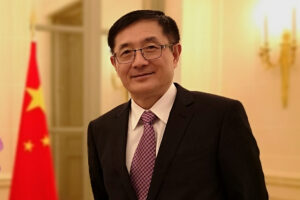 China’s Ministry of Foreign Affairs has outlined details of the nine-day visit of its Special Representative for Afghanistan, Yue Xiaoyong, in a statement.
China’s Ministry of Foreign Affairs has outlined details of the nine-day visit of its Special Representative for Afghanistan, Yue Xiaoyong, in a statement.
According to the statement, Yue Xiaoyong engaged in deep discussions about China’s relations with the caretaker government and practical cooperation in various fields during his visit to Afghanistan.
The statement reads: “During his visit to Afghanistan, Special Envoy Yue had in-depth exchanges with senior officials of the Afghan Interim Government on China-Afghanistan relations and practical cooperation in various fields.”
“China aims to strengthen its strategic political and economic ties with the Islamic Emirate of Afghanistan,” said Sadiq Shinwari, a political and military affairs expert.
During his trip, Yue Xiaoyong also visited Turkmenistan and Pakistan, where he met with foreign ministry officials from both countries and discussed Afghanistan-related issues.
The question now is how effective China’s efforts will be in addressing Afghanistan’s current crisis.
“China is one of the five countries with veto power in the United Nations and has maintained very good relations with Afghanistan’s current government over the past three and a half years. I hope these relations will revolve around safeguarding the national interests of both sides,” said Mohammad Zalmay Afghanyar, a political affairs expert.
China and Russia are among the countries close to Afghanistan’s caretaker government and have repeatedly emphasized their support for Afghanistan in achieving peace and stability.
UNAMA Forms Working Group on Counter-Narcotics
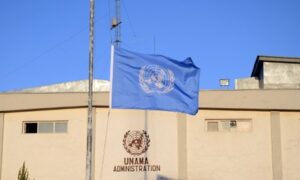 The United Nations Assistance Mission in Afghanistan (UNAMA) held the first meeting of its working group on combating narcotics Yesterday (Thursday).
The United Nations Assistance Mission in Afghanistan (UNAMA) held the first meeting of its working group on combating narcotics Yesterday (Thursday).
In a statement, UNAMA said that this initiative is part of efforts to engage “more effectively” with the de facto government on critical issues affecting the Afghan people.
The statement added that the formation of this working group stems from recommendations presented in the 2023 independent assessment to the United Nations Security Council.
“The establishment of the thematic working group follows the recommendations of the independent assessment submitted to the Security Council (S/2023/856) to pursue a more coherent, coordinated, and structured engagement process with Afghanistan’s de facto authorities, for the benefit of the Afghan people,” according to a statement from UNAMA.
UNAMA did not provide further details about the participants of the meeting.
“Counter-narcotics is an issue of critical importance for Afghanistan, impacting both rural communities and regional peace and stability,” said Roza Otunbayeva, Special Representative of the Secretary-General and head of UNAMA,
“The commission established by the United Nations to combat narcotics should coordinate and align with the Islamic system in Afghanistan to eradicate narcotics from Afghanistan and elsewhere,” said Hashim Alkozai, a political analyst.
“The issue of narcotics is an international problem and must be addressed internationally. The international community should have supported our farmers over the past three years by providing alternatives to their cultivation,” said Salim Paighir, a political analyst.
Previously, according to recent United Nations findings, opium production in Afghanistan increased by 30% in 2024 compared to the previous year, a claim dismissed by the Islamic Emirate as baseless.
UNHCR Reports 18% Increase in Deportation of Afghan Migrants
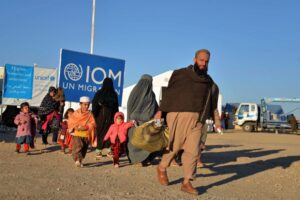 The United Nations High Commissioner for Refugees (UNHCR) reported an 18% increase in the deportation of Afghan migrants from Iran compared to last year.
The United Nations High Commissioner for Refugees (UNHCR) reported an 18% increase in the deportation of Afghan migrants from Iran compared to last year.
According to the organization’s statistics, Iran has deported nearly 560,000 Afghan migrants in the first nine months of this year.
The report stated that the average number of Afghan migrants deported from Iran is 2,040 people per day.
The report reads: “Based on estimations provided by UNHCR’s border monitoring partners, during nine months in 2024, an estimated 559,000 (undocumented Afghans were deported from Iran through Islam Qala and Zaranj crossing points. This represents a daily average of 2,040 individuals. The deportation figures for undocumented Afghans are approximately 18 percent higher compared to an estimated 472,000 deportees during the same period in 2023.”
Meanwhile, some Pakistani media outlets have reported that a trilateral meeting between the caretaker government of Afghanistan, Pakistan, and the UNHCR will soon be held regarding the situation of Afghan migrants.
A number of Afghan migrants in Pakistan and Iran have spoken about the increasing challenges faced by Afghan citizens.
Mohammad Reza Sazesh, an Afghan migrant in Pakistan, said about the challenges: “There are many migrants here, but the facilities are inadequate. Visa extensions, residence, and living conditions lack educational opportunities. We demand better conditions for migrants in Pakistan.”
“Establishing a transparent legal framework, ensuring human rights and security, access to basic services, facilitating resettlement and voluntary return, supporting host communities, and implementing empowerment programs for refugees require sincere cooperation and practical steps to improve the situation of refugees,” Ali Reza Karimi, a migrant rights activist, told TOLOnews.
On the 6th of Sunbula (August 27) this year, the Ministry of Refugees and Repatriation proposed a trilateral meeting with the United Nations and the Pakistani government to Islamabad to address the challenges facing Afghan migrants.
Afghanistan U19 cricket team wins Youth Tri-Nation Series
 The Afghanistan Under-19 cricket team delivered a commanding performance to claim the Youth Tri-Nation Series 2024 title, defeating Pakistan by 21 runs in a thrilling final in the United Arab Emirates.
The Afghanistan Under-19 cricket team delivered a commanding performance to claim the Youth Tri-Nation Series 2024 title, defeating Pakistan by 21 runs in a thrilling final in the United Arab Emirates.
Batting first, Afghanistan set an imposing target of 250 runs, bolstered by a disciplined batting effort. In response, Pakistan fought hard but fell short, managing only 229 runs before being bowled out, handing Afghanistan a well-deserved victory.
The tournament served as a showcase for Afghanistan’s rising cricket talent. During the group stage, Afghanistan recorded two wins and one loss against Pakistan, alongside two victories over the UAE, securing their place in the final.
The Tri-Nation Series is part of Afghanistan’s preparation for the Under-19 Asia Cup, which is set to begin on November 30 in the UAE. The Asia Cup will feature eight of the region’s top teams, with Afghanistan emerging as a strong contender for the title.
Afghanistan’s triumph in the Tri-Nation Series highlights the team’s growing prominence on the international stage and reflects the nation’s dedication to nurturing its next generation of cricketing stars.
Subscribe Now
Don’t miss our future updates! Get Subscribed Today!
© 2024 White Assembly. All Rights Reserved.

